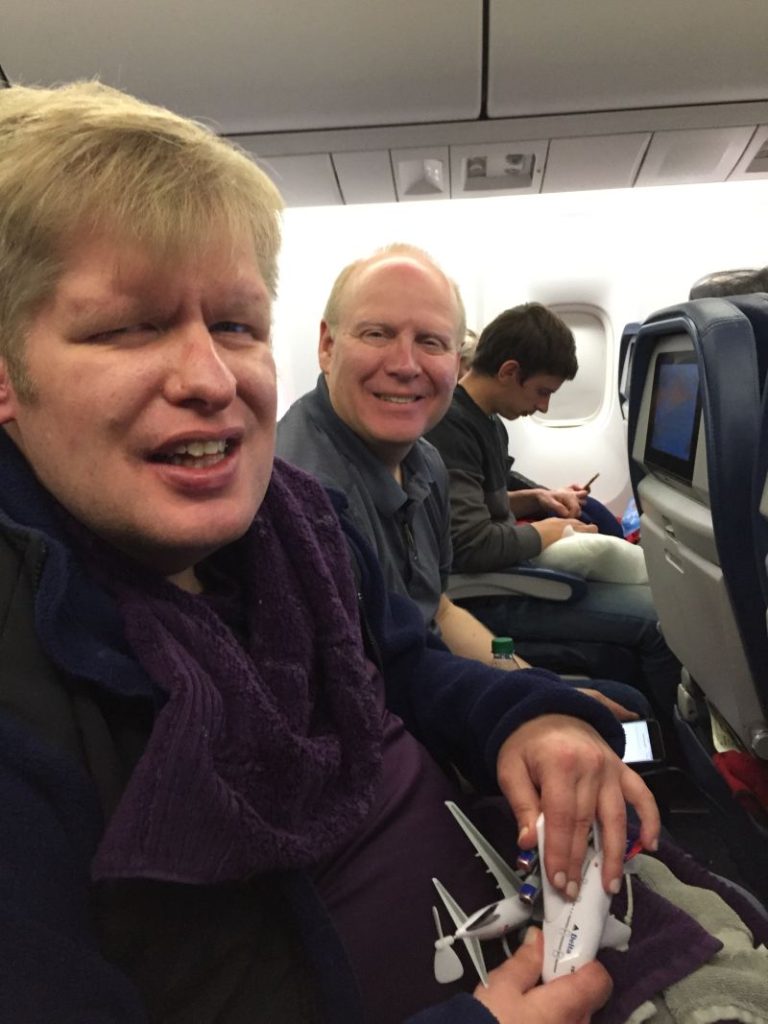Nick loves people and he is unafraid to initiate a conversation with everyone that he meets. We began noticing this habit of his about 10 years ago when we started using a wheelchair while we were traveling with him. We would use the service offered by the airport to have a person push his wheelchair through the airport. It has been especially helpful to us as we need to manage getting through airport security with a lot of carry-on bags.
His first question typically is. “What your name?” Arden or I often need to interpret what he is asking. When the person answers, Nick will repeat their name, trying to pronounce it correctly. Depending on the native language of the other individual, this can be difficult for Nick. They do seem to appreciate the fact that he is trying to say their name correctly.
Then he tells them, “My name is Nick.” Which is immediately followed by, “Have you met Eva?” or “Have you met Arden?” Once everyone is properly introduced, he then asks, ” What you do for a living?” If it is the wheelchair pusher he is asking, the person is sometimes confused by the question, because they are doing their job by pushing him through the airport. Often Nick will followup with, “What you do at home?”
By then Nick has made a new friend and the other person is usually smiling and engaging in conversation with not only Nick, but also Arden and I or whoever else is traveling with us. It is very fun to hear about other people, what they enjoy doing and how they came to work at the airport. It really makes the whole transfer time much more pleasant by having that simple human connection with another person.
For a long time, I would try and stop him from asking questions. I didn’t want him to be bothering other people. I came to realize that instead of bothering someone, these interactions actually gave the other person the opportunity to be noticed and recognized as performing a valuable service. As humans, we all need this.
There have been many times as we have traveled back through an airport, sometimes months later, we will see one of the wheelchair pushers again, and they remember Nick’s name. It is another reminder to me that everyone appreciates being treated with respect and kindness. Don’t be afraid to ask, “What’s your name?”
If you know someone else who loves someone who had a disability and would benefit when this book comes out, please share this with them. In order to get a book agent and work with a publisher, I need to increase my readership on this blog.
If you want to get a copy of this book as soon as it is available, click here to sign up.


